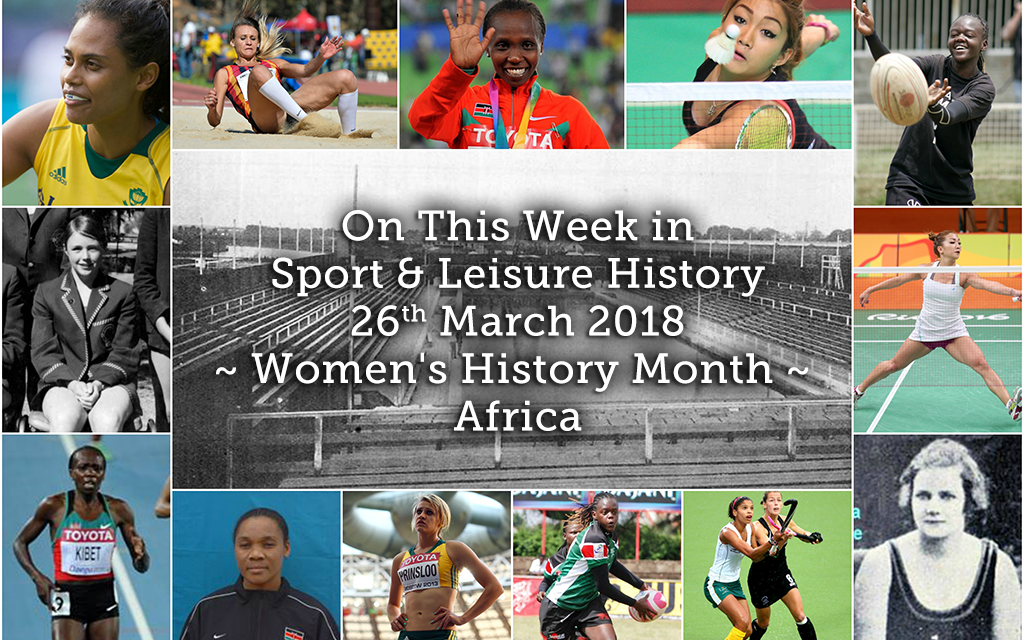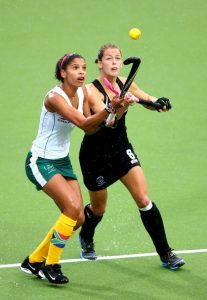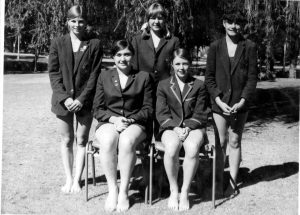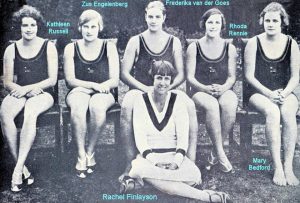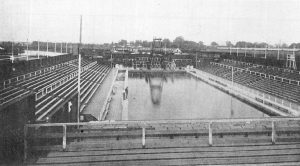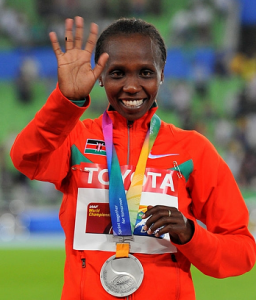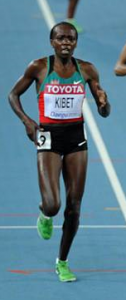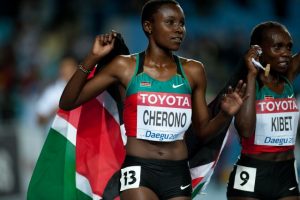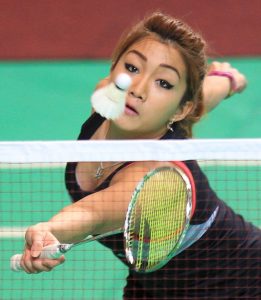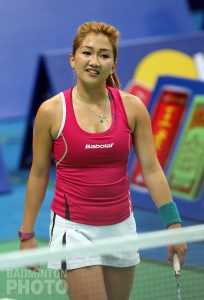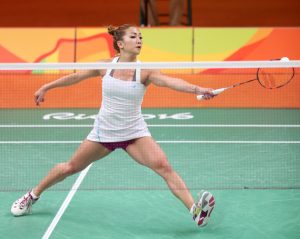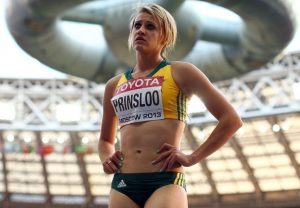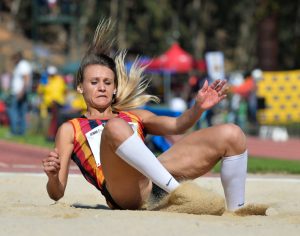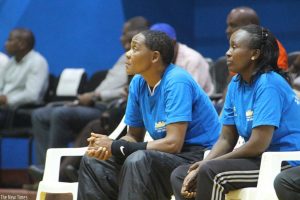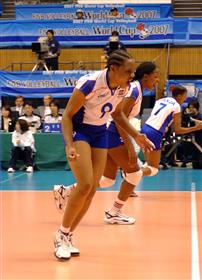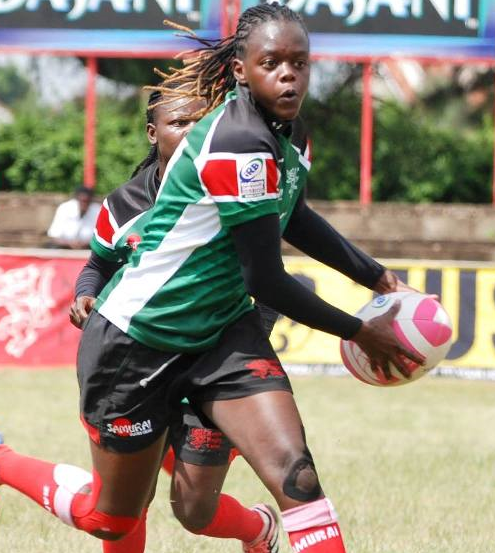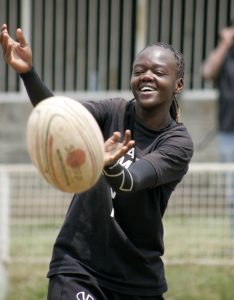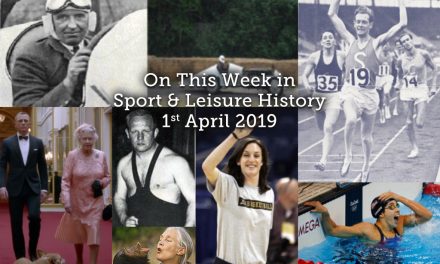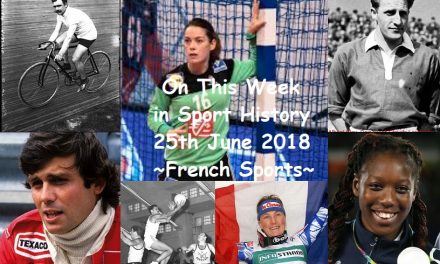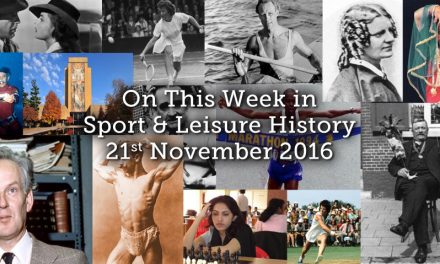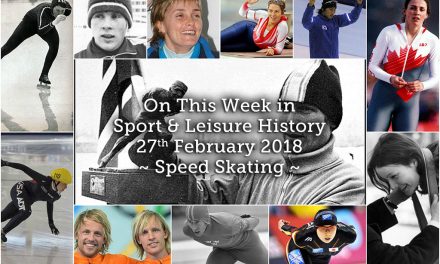26th– Born in Cape Town today in 1943 – Marion “Penny” Sage, who was a South African figure skater who represented her country at the 1960 Winter Olympics where she was placed 23rd. This was the first year in which South Africa participated in the Winter Games. Four athletes travelled to Squaw Valley, USA for the 8th edition of the Winter Olympics, all ice-skaters – and including Penny Sage who was 16 at the time. Although all the athletes missed out on medals by some way, an important step was made for the continent; though IOC condemnation of the apartheid regime would ensure the rainbow nation would not compete again until 1994. Also born on this day in Cape Town in 1987 is Hockey player Illse Davids, she was affiliated to the Western Province club. At the 2012 Olympics she competed with the South African national field hockey team, where she played at number 7. She studied at the University of North Carolina, where she also played for their hockey team. Illse was a member of the South African women’s hockey team who won the 2017 Africa Cup of Nations for the 7th time, beating Ghana in the final 4-0. Among her other honours were – a member of the 2012 Olympics South Africa team who finished in 10th place and the 2014 Commonwealth Games squad who lost the bronze medal match to New Zealand. Also born today in 1957 in Zimbabwe – diver Lesley Smith. She attended Eveline High School in Bulawayo, Zimbabwe and was coached by the charismatic Geoff Hill. She competed at the 1984 Los Angeles Games where she was 7th in the springboard event.
- Illse Davis
- Lesley Smith (sitting front right) in school diving team 1973
27th– Born on this day in 1907 in Durban was swimmer Mary Esther Bedford, she competed in the 1928 Olympics in Amsterdam. She was a member of the South African relay team which won the bronze medal in the 4×100m freestyle relay event. She also competed in the 400m freestyle, but was eliminated in the first round. The 1928 Games were the first where an Olympic Flame was ignited and which burned throughout the games. The tower that held the Olympic Flame still stands outside the front of the athletics stadium. 46 countries participated and the Games were officially opened by Prince Henry of Mecklenberg-Schwerin, the Consort of Queen Wilhelmina of the Netherlands. When the South African team marched past the Prince, they carried the orange, white and blue old South African flag – at previous Olympic Games, South Africa had no flag of its own, and marched behind a Union Jack. South Africa sent a team of five women swimmers to compete in the 1928 Games. The team consisted of Kathleen Russell, Zus Engelenberg, Frederika “Freddie” van der Goes, Mary “Marie” Ester Bedford and Rhoda Rennie. On the 9th of August, 1928 Rhoda, Kathleen, Freddie and Mary took part in the final of the Women’s 4×100 metres freestyle relay. The USA was victorious in a new world record time with the British team taking silver.The South African team, in winning bronze, claimed the first South African Olympic swimming medal. Mary died on 8th September 1997.
- 1928 South African Swimming Team
- 1928 Olympic Swimming Pool
28th– Today in 1984 saw the birth in Kapchorwa, Kenya of long-distance athlete Sylvia Jebiwott Kibet. She was the 5000m silver medallist at the World Championships in 2009 and 2011 and also won medals over the same distance in the 2006 African Championships, the 2007 All-Africa Games and the 2010 Commonwealth Games. She narrowly missed out on medals at major championships on a number of occasions, having finished fourth at the 2007 World Championships, 2008 Beijing Olympics and twice over 3000 metres at the IAAF World Indoor Championships (in 2008 and 2010). Her older sister Hilda Kibet is also a runner, who now represents the Netherlands, as does Lornah Kiplagat, their cousin. Affiliated to the Kenya Police team, after winning the 1500m silver medal at the 1999 World Youth Championships, she took a break from athletics and married Erastus Limo, a former middle-distance runner.
After giving birth to a daughter, she had her come-back in 2004 and started to reach the international level in 2005, showing improving performances in her preferred 5000m. In 2008, she set a national indoor record over 1500m of 4:07.46 at the BW-Bank Meeting and finished fourth at the World Indoor Championships in a new Kenyan indoor record of 8:41.82. She won her first major outdoor medal at the 2009 World Championships in Athletics, taking 5000m silver behind Vivian Cheruiyot. She became the first women’s winner of a newly inaugurated 7km race at the Memorial Peppe Greco, beating Ejegayehu Dibaba to the line. She also ran cross-country, winning the 2011 Trofeo Alà dei Sardi race and reached the podium on the 2011 Diamond League circuit once that season, taking third at the DN Galan over 5000m.
29th– Today in 1993, badminton player Kate Foo Kune was born in Mauritius. She began playing badminton at six and turned professional at 12, she made her international debut at the Thomas and Uber Cup Qualification for Africa in 2010 held at Uganda. She was named Sportswoman of the Year in 2015 in Mauritius. Her first major tournament in 2013 – the BWF World Championships in China, where she lost in the first round of the singles to England’s Sarah Walker. Kate represented her country at the 2016 Summer Olympic Games where she was the flag bearer during the Parade of Nations. As a junior player, she won the Under-15 and Under-19 African tournaments. She was awarded the Sportswoman of the year in 2015 in Mauritius. In doubles, she partnered Yeldy Marie Louison, and in mixed doubles, she partnered Georges Julien Paul.
Kate is the second child of Jacques and Cathy Foo Kune (née Ng), who were leading mixed doubles badminton players. Both Jacques and Cathy won several championships, such as the 1985 Indian Ocean Games. The pair was married in 1990 and had two children, Kate and Karen. Karen also plays badminton, and competed at the2008 Summer Olympic Games, the sisters were paired and also played mixed doubles in 2010 Commonwealth Games in New Delhi.
In September 2013, it was reported that she was one of the 14 players selected for the Road to Rio Program, a programme that aimed to help African badminton players compete at the 2016 Olympic Games. From 2016 she has lived in Paris and joined the Issy-Les-Moulineaux Badminton Club. Prior to this, she trained for four months in Malaysia and Leeds. Kate was part of the Mauritius badminton squad which won the title at the 2016 Africa Continental Team Badminton Championships as well as the 2016 European Badminton Club Championships with her club despite losing in the final to Beatriz Corrales. At the 2016 Olympics, she won her first match against Wendy Chen Hsuan-Yu of Australia, but was defeated by Porntip Buranaprasertsuk of Thailand and failed to qualify for the next round.
30th– South African long-jumper Lynique Prinsloo was born in Gauteng in 1991. She attended the University of Johannesburg and represented the University Athletics Club. She represented her South Africa at the 2013 World Championships but failed to qualify for the final. Her PB, which she set in is 6.81m which she set in Stellenbosch in 2013.
Lynique had to battle more than just the qualifying criteria to make her 2016 Olympic dream come true. Having suffered chronic back pain for three years, the road to her best form and, ultimately, selection for the Rio Olympics team, was a long and winding one. She had competed at international level since 2008 and divided her time between Johannesburg and Pretoria, which she believed gave her the best chance of achieving the Olympic benchmark of 6.70m after teaming up with coach Emmarie Fouche. Competing at the South African student championships in Limpopo earlier in 2016, the 25-year-old soared to a winning effort to better the Olympic qualifying standard of 6.70m by a full eight centimetres. Like athletes around the globe, sacrifice has become her second name as she went in search of her Olympic dream.- her move from Pretoria to Johannesburg meant she had to be away from her fiancé, 400m hurdler PC Beneke, her pet Yorkie dog, Franky and her family. At the 2016 Games, she failed to reach the final round, her best mark being 6:10m in the qualifying round, placing 33rd in the final standings,
31st– Dorcas Nakhomicha Ndasaba was born on this day in 1971 in Kenya. Dorcas played for the Kenyan national volleyball team as well as being a member of the Telekom Club in Nairobi.
She participated in the 1998 FIVB Volleyball Women’s World Championship and in the 2002 FIVB Volleyball Women’s World Championship. Dorcas further competed with the national team at the 2000 Summer Olympics in Sydney, and at the Athens 2004 Summer Olympics, both times finishing 11th.
1st– Rugby-Sevens scrum-half player Catherine “Kate” Abilla, was born on this day in 1989 in Nairobi, Kenya. She attended the Moi High School for girls in Nairobi and her home club is the Mwamba Ladies RFC and she started playing mini-rugby at the age of 10. Kate was selected as a member of the Kenyan national rugby sevens team – Kenya Lionesses – for the 2016 Olympics. She was successful in leading the team to qualify for the Games.
Kate considers that going to the Rio Olympics as a dream come true and that Kenyan team being recognised as the second-best women’s team in Africa as a great personal moment. The road to Rio looked long and hazardous for the Kenyan women’s rugby sevens team. Having come second in the African Olympic qualifying tournament the Lionesses were preparing for the 16-team global repechage tournament, from which only one team would qualify for the Rio Games. All that changed with the news that South Africa would not be taking up the berth they won at the continental qualifier, the door swung back open for Kenya, when World Rugby confirmed their place at the Olympic Games. South Africa beat Kenya in the final of the African qualifying tournament in Johannesburg, but the South African Sports Confederation and Olympic Committee (SASCOC) confirmed it would not accept the place, in line with their Olympic qualification criteria. It followed a similar situation with the South African hockey teams. It meant that Kenya joined the other 10 women’s teams already qualified for the 12-team tournament in Rio, as well as their nation’s male team, who won the men’s African qualifier. Kenya played in Group B along with: New Zealand, France and Spain. They lost all their group games and therefore failed to reach the knock-out stage of the tournament. Kate would love to see the Kenya Lionesses be known as a team worldwide and we are slowly heading there she said recently.

